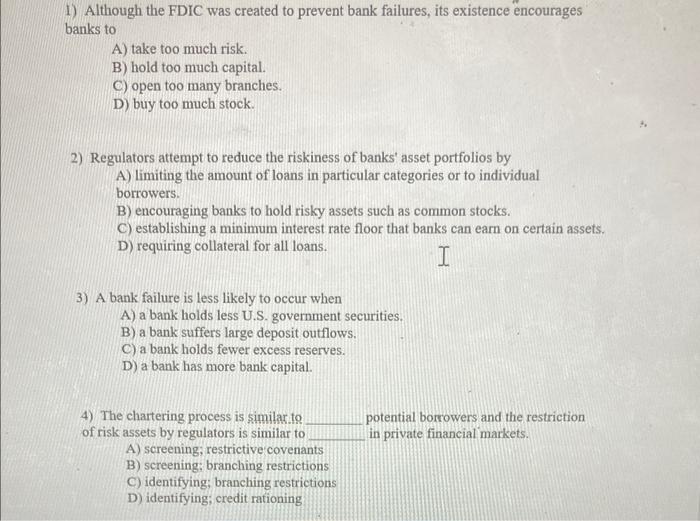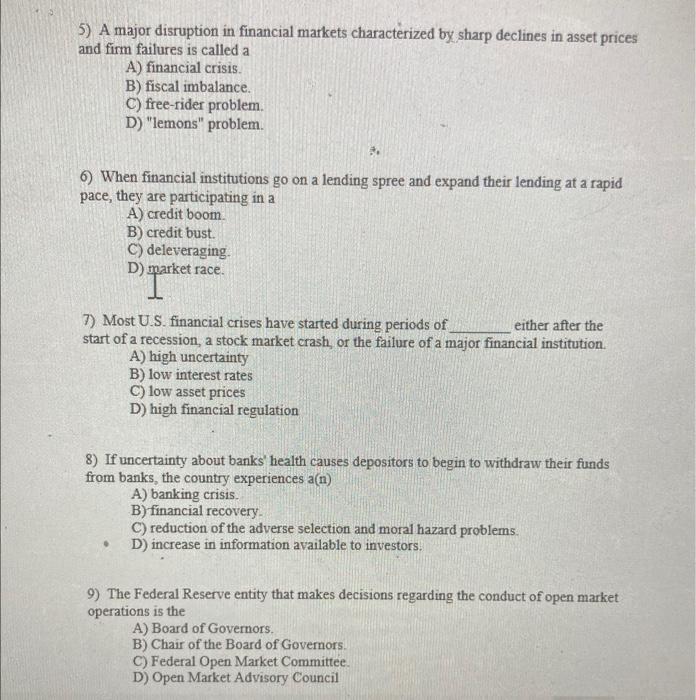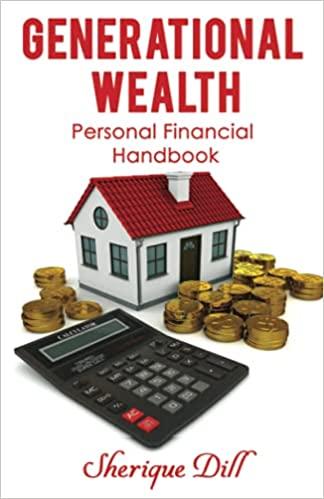1) Although the FDIC was created to prevent bank failures, its existence encourages banks to A) take too much risk. B) hold too much capital. ) open too many branches. D) buy too much stock. 2) Regulators attempt to reduce the riskiness of banks' asset portfolios by A) limiting the amount of loans in particular categories or to individual borrowers. B) encouraging banks to hold risky assets such as common stocks. C) establishing a minimum interest rate floor that banks can earn on certain assets. D) requiring collateral for all loans. I 3) A bank failure is less likely to occur when A) a bank holds less U.S. government securities. B) a bank suffers large deposit outflows. C) a bank holds fewer excess reserves. D) a bank has more bank capital. potential borrowers and the restriction in private financial markets. 4) The chartering process is similar to of risk assets by regulators is similar to A) screening; restrictive covenants B) screening: branching restrictions C) identifying; branching restrictions D) identifying; credit rationing 5) A major disruption in financial markets characterized by sharp declines in asset prices and firm failures is called a A) financial crisis. B) fiscal imbalance. C) free-rider problem. D) "lemons" problem. 6) When financial institutions go on a lending spree and expand their lending at a rapid pace, they are participating in a A) credit boom B) credit bust. C) deleveraging D) market race. Ink 7) Most U.S. financial crises have started during periods of either after the start of a recession, a stock market crash, or the failure of a major financial institution. A) high uncertainty B) low interest rates C) low asset prices D) high financial regulation 8) If uncertainty about banks health causes depositors to begin to withdraw their funds from banks, the country experiences an) A) banking crisis B) financial recovery C) reduction of the adverse selection and moral hazard problems. D) increase in information available to investors . 9) The Federal Reserve entity that makes decisions regarding the conduct of open market operations is the A) Board of Governors. B) Chair of the Board of Governors. C) Federal Open Market Committee. D) Open Market Advisory Council








